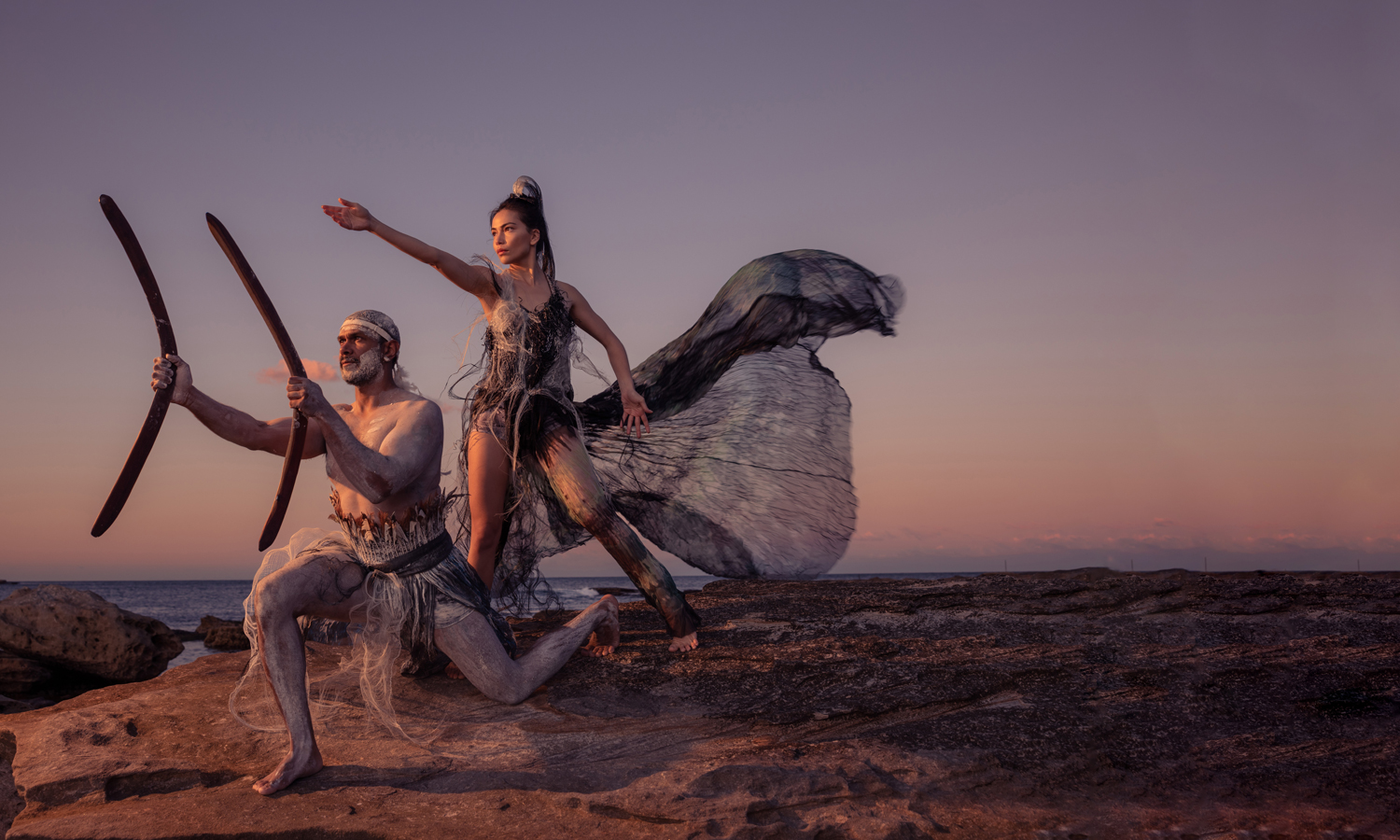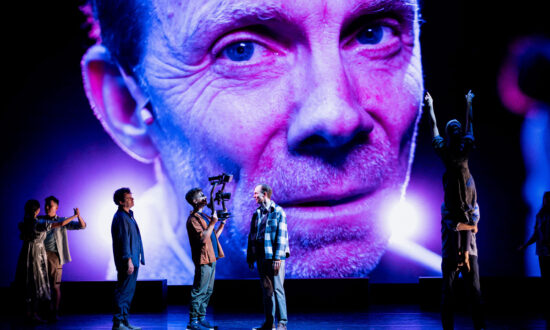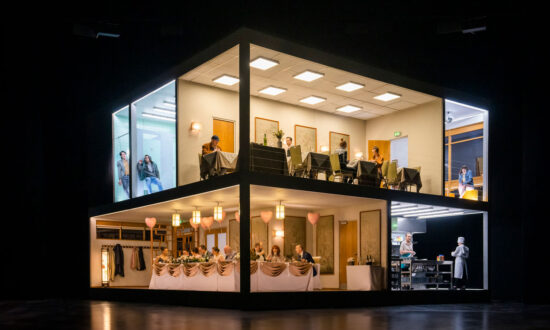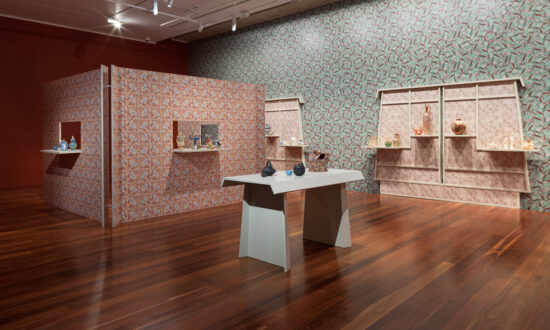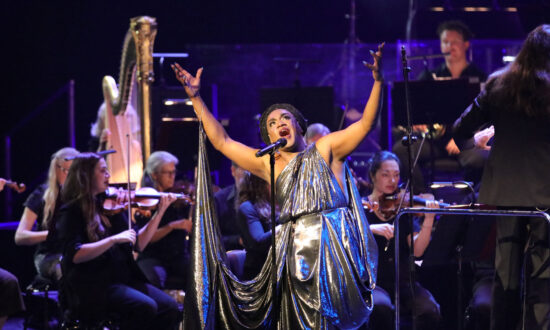Stephen Page stepped down from his role as artistic director of Bangarra Dance Theatre in early 2023. When he was approached by Adelaide Festival artistic director Ruth Mackenzie to start the next chapter of his career with a 2024 Festival commission, his immediate instinct was toward something he saw as fundamental and simple.
“I just said to Ruth, ‘Oh, I’d love to do you a contemporary ceremony’,” says Page.
“Wouldn’t it be great if we can tap into the innocence of creation stories – of human and spirit and creature relationships and just the simplicity of that?”
Over the intervening months, Page’s impulse has developed into Baleen Moondjan – an epic yet beautifully simple storytelling event that will open the 2024 Adelaide Festival.
In part, he sees the work as a chance to return to his core interest in storytelling after the complexities of running a large and enormously influential arts company over the past three decades.
“I’m grieving leaving a job [at Bangarra] that I started from a blank canvas,” he explains.
“[We created] A language, a contemporary dance theatre language… we put it on the map all through four decades. We’ve toured globally with our stories, a foot in each world of contemporary and traditional, whilst we maintained the integrity and the protocols creatively.”
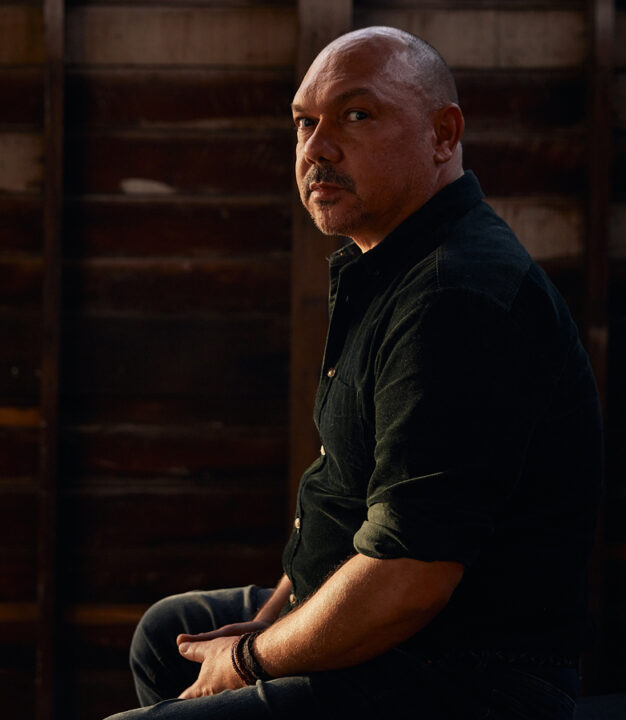
Stephen Page says his new work is a chance to return to his core interest in storytelling. Photo: Daniel Boud
But Page’s attraction toward beauty and elemental storytelling in Baleen Moondjan is also a response to darker influences.
The harrowing Voice referendum of last year, and the ongoing demonstration of the long-tail impacts of colonisation through incidents such as Rio Tinto’s destruction of a sacred site at Juukan Gorge, are among many moments also echoing in his mind.
“I think after that referendum, I just want to go back and believe in my own… knowing and knowledge of my connection to culture,” he says. “You know, I think you spend all your life begging and wanting respect… and it’s just exhausting.”
In Baleen Moondjan, Page is bringing to Adelaide perhaps the most generous response possible to those circumstances.
Outside, on the shores of Pathawilyangga (Glenelg) Beach at sunset, he and his collaborators will share a beautiful story. Told with his trademark blend of mediums – including soundscape, dance, song, dialogue and highly aesthetic staging – it will be Page’s latest invitation to share in and learn from the millennia-old culture and knowledge of Australia’s First Nations.
“I’m not here to do a big social protest,” says Page. “It’s just beautiful and inspired – [there’s] whale bones, and in the belly of it at sunset, the sun, the last fingernail of light will finish.
“And then we’ll start 60 minutes of a cultural ceremony – a generational, totemic, human creation story, told through song, dance, story, and language.”
The story originates with the Ngugi/Nunukul/Moondjan people of Minjerribah (Stradbroke Island) and travelled matrilineal lines to reach Page’s ears. It explores the deep connection between humans and their totems by following an Elder who feels the spiritual call of her baleen whale totem and shares the strength of this relationship with her granddaughter before passing on.
In its form and scale, Page compares Baleen Moondjan with the international touring operas that will also be presented at the Festival.
“Ceremony, for me, is always so thematically diverse,” he says. “There’s men’s and women’s business themes, there’s totemic themes and ceremonies, there’s death ceremonies, there’s birth ceremonies, there’s relationships of wet seasons and dry seasons.
“There’s beautiful metaphors and practices. And I felt like I just wanted to bring the spirit and notion of that into performance.”

Baleen Moondjan explores the deep connection between humans and their totems. Photo: Daniel Boud
Page has developed Baleen Moondjan alongside a handful of long-time collaborators, including co-writer Alana Valentine, composer Steve Francis and set designer Jacob Nash.
With a cast of 11 performers who weave between singing in English, Jandai and Gumbaynggirr/Yaegl, musical performance, narration, dialogue and dancing, the work is set inside a low outdoor staging on the sands of Pathawilyangga.
Each evening, audiences will find their own seats amid the natural indentations of the shore as the sun dips below the horizon.
“With my scenic artist, Jake Nash, I said, ‘Wouldn’t it be great if we uprooted our storytelling, how we… [go] in those black caves in the theatre and we create our First Nations dance theatre magic? Wouldn’t it be great if we just uprooted that? And we put it in an outdoor element’.”
In that way, Baleen Mondjan is both an evolution and continuation of the work Page has been doing for years.
Similarly, while it might signal a new chapter in his career, it equally signals the consistency of his artistic purpose as he rallies and prepares to once more find ways to turn new eyes toward the world’s most ancient storytellers.

Get InReview in your inbox – free each Saturday. Local arts and culture – covered.
Thanks for signing up to the InReview newsletter.
“This is the time to reawaken that consciousness,” says Page. “And the next generations and our children, they just will have the sense of cultural, artistic stories that come from this land.”
Baleen Moondjan will be performed at Pathawilyangga (Glenelg) Beach from February 28 until March 2 as part of the 2024 Adelaide Festival.
Read more 2024 Adelaide Festival stories here.
Support local arts journalism
Your support will help us continue the important work of InReview in publishing free professional journalism that celebrates, interrogates and amplifies arts and culture in South Australia.
Donate Here
